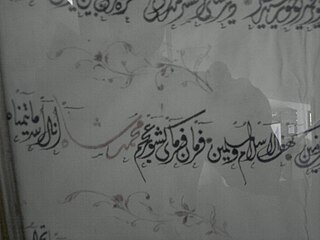 W
WAjam (عجم) is an Arabic word meaning mute, which today refers to someone whose mother tongue is not Arabic. During the Arab conquest of Persia, the term became a racial pejorative.
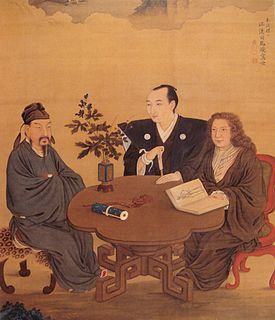 W
WAng mo, or ang moh, is a racial descriptor used to refer to white people that is sometimes seen as a pejorative epithet. It is mainly used in Singapore and Taiwan, and to a lesser extent Malaysia and Thailand. It literally means "red-haired" and originates from Hokkien, a variety of Southern Min. The usage is similar to the Cantonese term gweilo, which is more commonly used in Hong Kong and Macau.
 W
WA barbarian is a human who is perceived to be either uncivilized or primitive. The designation is usually applied as a generalization based on a popular stereotype; barbarians can be members of any nation judged by some to be less civilized or orderly but may also be part of a certain "primitive" cultural group or social class both within and outside one's own nation. Alternatively, they may instead be admired and romanticised as noble savages. In idiomatic or figurative usage, a "barbarian" may also be an individual reference to a brutal, cruel, warlike, and insensitive person.
 W
W"Canadians of convenience" is a pejorative referring to Canadian citizens with multiple citizenship who live permanently outside of Canada or remain outside the country for extended periods without "substantive ties" to Canada. Some definitions use the term to refer to persons who immigrate to Canada, meet the residency requirement to become a naturalized citizen, and then return to live in their original home country while maintaining their Canadian citizenship. The term implies that these citizens only acquire or maintain their citizenship as a form of "insurance" so that they may call on the Canadian government for protection in the event of an emergency.
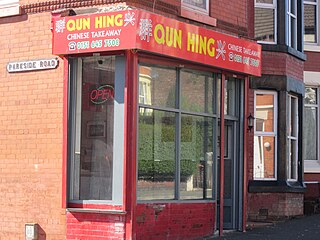 W
WIn the United Kingdom, chinky is an offensive slang word for a Chinese takeaway restaurant or Chinese food. However, along with 'chink', they are named among TV's most offensive words. In the 20th century, the word 'chink' was a term used by many white North Americans to exclude and mock the facial appearance of Chinese migrants.
 W
WChukhna, Chukhnas, Chukhontsy is an obsolete Russian term for some Finnic peoples: Finns, Estonians, Karelians, Ingrian Finns.
 W
WCracker, sometimes white cracker or cracka, is a racial epithet directed towards white people, used especially against poor rural whites in the Southern United States. It is sometimes used in a neutral context in reference to a native of Florida or Georgia.
 W
WThe word Fenian served as an umbrella term for the Fenian Brotherhood and the Irish Republican Brotherhood (IRB), secret political organisations dedicated to the establishment of an independent Irish Republic in the 19th and early 20th centuries. They were active in Ireland, Britain, Canada and the United States. They sometimes used violence.
 W
WA gringo (male) or gringa (female) is someone considered a foreigner from the perspective of Spanish and Portuguese-speaking countries in Latin America. Gringo usually refers to a foreigner, especially from the United States or Canada. Although it is considered an offensive term in some Spanish-speaking countries, in most Spanish-speaking countries and in Brazilian Portuguese, the term simply means "foreign". In English it often carries a derogatory connotation, and sometimes does so in Spanish and Portuguese. Possible other connotations may include monolingualism, a lack of understanding of Hispanic culture, and blond hair with white skin.
 W
WGuizi is a pejorative Chinese slang term for foreigners, and has had a history of containing xenophobic connotations.
 W
WHa Ling Peak is a peak at the northwestern end of Mount Lawrence Grassi — a mountain located immediately south of the town of Canmore just east of the Spray Lakes road in Alberta's Canadian Rockies. It was previously named Chinaman's Peak but the name was changed to be less offensive. It was the subject of a 2018 CBC Documentary titled 'Ha Ling Peak' that follows the controversy and renaming of the mountain.
 W
WHajji is an honorific title which was originally given to a Muslim who had successfully completed the Hajj to Mecca. It is also often used to refer to an elder, since it can take years to accumulate the wealth to fund the travel, and in many Muslim societies to a respected man as an honorific title. The title is placed before a person's name; for example Saif Gani becomes Hajji Saif Gani.
 W
WHalf-breed is a term, used to describe anyone who is of mixed race; although, in the United States, it usually refers to people who are half Native American and half European/white.
 W
WHalf-caste is a term for a category of people of mixed race or ethnicity. It is derived from the term caste, which comes from the Latin castus, meaning pure, and the derivative Portuguese and Spanish casta, meaning race. Terms such as half-caste, caste, quarter-caste and mix-breed were widely used by ethnographers throughout the British Empire to try to classify "the natives", and in Australia used during the pursuit of a policy of assimilation. In Latin America, the equivalent term for half-castes was Cholo and Zambo.
 W
W"Hillbilly" is a term for people who dwell in rural, mountainous areas in the United States, primarily in southern Appalachia and the Ozarks. The term was later used to refer to people from other rural and mountainous areas west of the Mississippi river too, particularly those of the Rocky Mountains and near the Rio Grande.
 W
WHinomoto Oniko is a Japanese moe character created in 2010 which originated from the Breaking News (VIP) Board on 2channel, and has since become an internet meme within various forums and imageboards in Japan. The character is a moe anthropomorphism of the phrase "日本鬼子", a commonly used Chinese ethnic slur against persons of Japanese descent.
 W
WJesus freak is a term arising from the late 1960s and early 1970s counterculture and is frequently used as a pejorative for those involved in the Jesus movement. As Tom Wolfe illustrates in The Electric Kool-Aid Acid Test, the term "freak" with a preceding qualifier was a strictly neutral term and described any counterculture member with a specific interest in a given subject; hence "acid freak" and "Jesus freak". The term "freak" was in common-enough currency that Hunter S. Thompson's failed bid for sheriff of Pitkin County, Colorado, was as a member of the "Freak Power" party. However, many later members of the movement, those misunderstanding the countercultural roots believed the term to be negative, and co-opted and embraced the term, and its usage broadened to describe a Christian subculture throughout the hippie and back-to-the-land movements that focused on universal love and pacifism, and relished the radical nature of Jesus's message. Jesus freaks often carried and distributed copies of the Good News for Modern Man, a 1966 translation of the New Testament written in modern English. In Australia, and other countries, the term Jesus freak, along with Bible basher, is still used in a derogatory manner. In Germany, there is a Christian youth culture, also called Jesus Freaks International, that claims to have its roots in the U.S. movement.
 W
WMat Salleh is a Malay term used as a colloquial expression to refer to white people. The exact origins of the expression are difficult to ascertain, due to there being several versions of the term's origin being passed down via word of mouth, with little or no official documentation to support such oral claims. The term arose during the colonial period of Malaysian history, but its usage has decreased since independence.
 W
WMoskal, also known as Muscal, is a historical designation used for the residents of the Grand Duchy of Moscow from the 12th to the 15th centuries. Today, it is used as an ethnic slur for ethnic Russians from Russia proper by Ukrainians, Belarusians and Poles in their respective countries. The term is generally considered to be derogatory or condescending and reciprocal to the term khokhol for Ukrainians, as used by Russians. Another Ukrainian ethnic slur for Russians is katsap, meaning bearded.
 W
WThe Orient is a term for the East, traditionally comprising anything that belongs to the Eastern world, in relation to Europe. It is the antonym of Occident, the Western World. In English, it is largely a metonym for, and coterminous with, the continent of Asia, loosely classified into the Near East, Middle East and Far East: the geographical and ethno-cultural regions now known as West Asia, South Asia, East Asia, and Southeast Asia. Originally, the term Orient was used to designate the Near East, and later its meaning evolved and expanded, designating also the Middle East or the Far East.
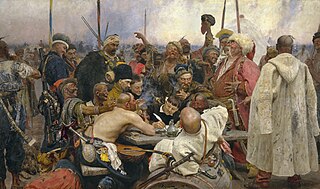 W
WKhokhol or oseledets is the stereotypical Ukrainian cossack style of haircut that features a long lock of hair left on the otherwise completely shaved head, commonly sprouting from the top or the front of an otherwise closely shaven head. It is commonly used as an ethnic slur for Ukrainians.
 W
WPlastic Brit, or Plastic Briton, is a pejorative term used to describe athletes who choose to represent Great Britain in international sport despite having personal connections to another country. Some media critics believe it undermines the purpose of international sport for the purpose of medals.
 W
WPolaco is a Spanish derogatory term for a Catalan person. Its origins are not clear and all related theories are purely speculative, usually banking on the fact that the same word denotes a Pole. The name appears across all Spain, though in particular in Madrid and in the regions neighboring Catalonia. Rarely present in literary language, it forms part of the slang vocabulary; its best-known usage is during sport competitions. In Catalonia the term is accepted and at times used once its derogatory flavor is wiped out or reversed, such as when telling Catalans from other Spaniards. In Poland the term is generally unknown; when reported, its offensive connotation is marginalized or ignored, replaced with references to alleged Catalan sympathy towards Poland.
 W
WPreacher's kid is a term to refer to a child of a preacher, pastor, deacon, vicar, lay leader, priest, minister or other similar church leader. Although the phrase can be used in a purely descriptive way, it may also be used as a stereotype.
 W
WRemove Kebab is a phrase that originated in the online community surrounding a Serb nationalist and anti-Muslim propaganda music video from the Yugoslav Wars. The phrase has spread globally amongst Neo-Nazi groups and the alt-right as a meme which references and advocates for the ethnic cleansing of Muslims.
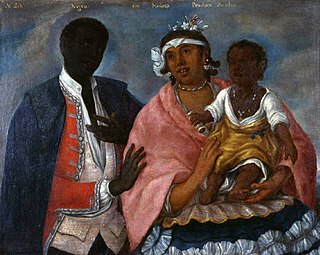 W
WSambo is a dated name in American English derived from a term for a person of mixed African and Amerindian ancestry. The name then came to be applied to Black persons of various degrees of European admixture: mulatto, quadroon, octoroon, etc., in American and British English.
 W
WSchwabenhass is a neologism referring to aversion to the approximately 300,000-strong Swabian diaspora in Berlin and elsewhere in Germany outside of Swabia. In 2013, the so-called Spätzle-streit gained nationwide attention.
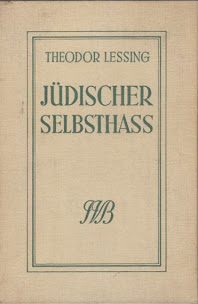 W
WSelf-hating Jew or self-loathing Jew is a pejorative term applied to Jews perceived or alleged to hold antisemitic views. Similar accusations of discomfort with ones own Jewishness were already being made by some Jews against other Jews, before Zionism existed as a movement. The concept gained widespread currency after Theodor Lessing's 1930 book Der jüdische Selbsthaß, which sought to explain a perceived inclination among Jewish intellectuals, toward inciting antisemitism, by stating their views about Judaism. The term is said to have become "something of a key term of opprobrium in and beyond Cold War-era debates about Zionism".
 W
WSheep-shagger is a derogatory term, most often used to refer to Welsh people implying that the subject has sex with sheep. In a court case in Britain, the use of the term directed at a Welsh person was ruled to be a "racially aggravating" factor in a disorderly conduct offence.
 W
WTerrone is an Italian term to designate, in an often pejorative manner, people who dwell in Southern Italy or are of Southern Italian descent.
 W
WA "Turk's Head Brush" is a type of cleaning brush where the bristles are arranged covering the end of the stem as a half-sphere, so that the end of the stem does not come into direct contact with the surface being cleaned, especially when cleaning the inside of a cylindrical object. A larger type, mounted on a long stem and used for removing cobwebs, is called a "Turk's head broom". The name has long been in use for this type of brush, so named because its cleaning end resembles a "wild" head of hair. Turk's head brushes and brooms are used for domestic purposes, for cleaning artillery, for pharmaceutical use, for sweeping chimneys, and for other purposes.
 W
WUkrop is a Russian ethnic slur referring to Ukrainians.
 W
WWe-Sorts is a name for a group of Native Americans in Maryland who are from the Piscataway tribe. It is regarded as derogatory and a pejorative by some, and rarely used by the current younger generation. The Piscataway were powerful at the time of European encounter. Many individuals with the surnames Proctor, Newman, Wright, Savoy, Queen, Butler, Thompson, Swann, Gray, and Harley claim that Native heritage. Many are notably of a mixed race between black, white and Native American. "Some members of the Piscataway Indian groups now consider the name Wesort derogatory." Historian Frank Sweet lists "Wesorts" as among a group of "derogatory epithets given by mainstream society, not self-labels". However, "Wesort" is listed as a self-identified "Other race" on the 2000 United States Census.
 W
WXiao riben is a derogatory Chinese slang term for the Japanese people or a person of Japanese descent. Literally translated, it means "little Japan". It is often used with "guizi" or ghost/devil, such as "xiao Riben guizi", or "little Japanese devil".